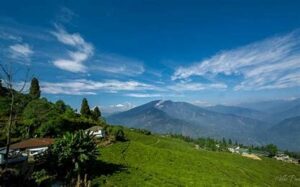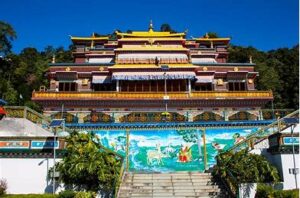Manju Borah is a name synonymous with meaningful, thought-provoking cinema from Northeast India. A national award-winning filmmaker, writer, and social commentator from Assam, Borah has carved out a unique space in Indian cinema through her poignant storytelling, rooted in the culture, language, and socio-political landscape of the region. At a time when Northeast India is often sidelined in mainstream media and entertainment, Borah’s films offer a powerful counter-narrative—one that is authentic, emotionally resonant, and visually poetic.
In this blog, we delve into the life, legacy, and cinematic contributions of Manju Borah, whose films have not only brought critical acclaim but also amplified the voices of marginalized communities across the Northeastern states of India.
Early Life and Education: The Roots of a Storyteller
Born in Jorhat, Assam, Manju Borah grew up amid the vibrant cultural milieu of Assam. Her early life was steeped in the folk traditions, literature, and oral storytelling of her homeland, which later shaped her filmmaking ethos. Borah completed her Master’s degree in Philosophy, a discipline that sharpened her analytical thinking and philosophical approach toward storytelling—a quality evident in her films that often explore existential dilemmas, moral ambiguity, and cultural conflicts.
Before stepping into cinema, she was an accomplished short story writer and essayist in Assamese literature. Her flair for language and nuanced understanding of human behavior were early indicators of the profound filmmaker she would eventually become.
Entry into Filmmaking: A Bold New Voice from Assam
Manju Borah made her directorial debut with the Assamese-language film Baibhab (1999). The film received a Special Mention at the National Film Awards for its sensitive portrayal of a woman struggling to reclaim her identity in a male-dominated society. With Baibhab, Borah announced herself as a filmmaker capable of fusing artistic sensitivity with social relevance. It marked the beginning of a rich and diverse cinematic career spanning more than two decades.
Unlike commercial cinema, Borah’s films are steeped in realism and cultural specificity. Her narratives focus on underrepresented communities, tribal identities, language preservation, and women’s issues—areas rarely addressed in Indian mainstream cinema.
Notable Films and National Recognition
Aakashitorar Kothare (2003)
Translated as Words from the Sky, this film was a milestone in Borah’s career. It was awarded the National Film Award for Best Feature Film in Assamese. The story revolves around a young girl grappling with the collision between tradition and modernity in rural Assam. The film also won the Best Female Playback Singer award for Tarali Sarma, underlining its emotional and musical depth.
The jury appreciated its lyrical storytelling and the way it preserved intangible aspects of Assamese culture. This film marked Borah as one of the few Indian filmmakers capable of portraying cultural identity through a feminist lens.
Aai Kot Nai (2008)
This film tackled the politically sensitive and emotionally devastating theme of ethnic conflict in the Northeast. Aai Kot Nai (Mother is Nowhere) revolves around children orphaned by ethnic violence. The film won the Nargis Dutt Award for Best Feature Film on National Integration, cementing Borah’s reputation as a filmmaker unafraid to tackle tough subjects.
With its haunting visuals and minimalist storytelling, the film asked uncomfortable questions about communal harmony, identity, and the psychological toll of violence on the innocent.
Ko:Yad (2012)
One of the most groundbreaking films in her oeuvre, Ko:Yad is made in the Mising language, spoken by an indigenous community in Assam. The film follows the life of a marginalized driftwood collector along the banks of the Brahmaputra River. Through his daily struggles, the film offers a deeply human perspective on poverty, environmental change, and tribal identity.
The film won two National Awards—Best Feature Film in Mising and Best Cinematography (Sudheer Palsane). Critics praised its visual poetry and raw authenticity. By making a film in Mising, Borah also contributed to the preservation and promotion of a lesser-known indigenous language.
Dau Huduni Methai (2015)
Based on the novel by Rashmirekha Bora, this Bodo-language film narrates the story of a young girl who becomes a victim of sexual violence amid insurgent conflict. Borah fearlessly addresses the traumatic intersection of gender and armed violence, especially as it affects tribal women.
The film was screened at the Montreal World Film Festival and was praised for its daring narrative and powerful performances. With Dau Huduni Methai, Borah shed light on the dark realities that often remain hidden behind sensational headlines.
In the Land of Poison Women (2019)
Known in Pangchenpa as Bishkanyar Deshot, this film is based on the novel by Yeshe Dorjee Thongchi. It tells the story of Lusang, a woman wrongly labeled as a “poison woman” believed to bring death to those around her. Set in a remote village in Arunachal Pradesh, the film explores superstitions, isolation, and the devastating impact of stigma on individuals.
The film was awarded the National Film Award for Best Feature Film in Pangchenpa, an endangered dialect spoken by fewer than 1,000 people. Borah’s decision to tell the story in Pangchenpa not only brought attention to the dialect but also underscored her commitment to linguistic and cultural preservation.
Manju Borah as a Cultural Advocate
Beyond her films, Manju Borah has been deeply involved in promoting regional cinema and cultural discourse. She has served on numerous national and international film juries, including:
- Indian Panorama Jury, IFFI 2007
- Jury Chairperson, Indian Panorama 2010
- Member of the 55th and 58th National Film Awards
- Member, Eastern India Motion Picture Association (EIMPA)
- Member, NFDC script panel
Her presence in such esteemed circles has helped shine a spotlight on Northeastern narratives, encouraging more representation of the region’s diverse voices.
She is also associated with the Programme Advisory Committee of All India Radio and Doordarshan Kendra in Guwahati, reinforcing her role in shaping Assam’s media and broadcast landscape.
Literary Contributions
Manju Borah is also a respected voice in Assamese literature. She has published several short stories and essays that reflect her feminist ideology, cultural insights, and socio-political awareness. Her dual identity as a writer and filmmaker allows her to approach storytelling with a rich literary sensibility.
She has spoken at numerous seminars and workshops, advocating for women in cinema, tribal representation, and regional storytelling. Her advocacy has empowered many emerging filmmakers from the Northeast.
Legacy and Influence
Manju Borah’s influence on Indian cinema is multifaceted:
- Representation: She has brought forward underrepresented languages and communities like the Mising, Bodo, and Pangchenpa-speaking people.
- Social Commentary: Her films are powerful tools for social change, focusing on gender issues, insurgency, displacement, and cultural identity.
- Cultural Preservation: Through language, folklore, and ethnographic storytelling, she has helped preserve endangered dialects and traditional narratives.
- Inspiration: She has paved the way for future generations of filmmakers from the Northeast, especially women.
Her legacy goes beyond awards. She has created an archive of lived realities and cultural textures that would otherwise remain invisible to mainstream audiences.
Conclusion: A Voice That Matters
Manju Borah is more than just a filmmaker—she is a chronicler of Northeastern India’s soul. In a country where the mainstream often overlooks peripheral voices, Borah has chosen to stand with the margins. Her commitment to linguistic diversity, cultural integrity, and visual storytelling has earned her a place among India’s most respected filmmakers.
As regional cinema continues to grow and gain global attention, Manju Borah’s body of work stands as a testament to the power of storytelling rooted in truth, empathy, and cultural pride. Her films are not just watched—they are felt, remembered, and celebrated.




